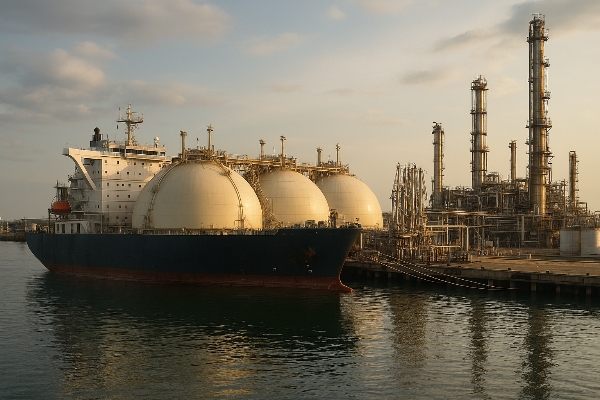Our Terms & Conditions | Our Privacy Policy
Israeli Gas Declines: Egypt Seeks Gas to Avoid Energy Crisis
Facebook
Twitter
LinkedIn
WhatsApp
Egypt is ramping up efforts to secure its energy supply in the face of a sharp decline in domestic production and reduced imports from Israel.
According to Reuters, discussions are underway with several energy companies and international trading firms to acquire between 40 and 60 shipments of liquefied natural gas (LNG) to avoid another wave of electricity outages during the summer peak demand period.
Up to $3 Billion to Prevent Outages
At current gas prices, these purchases could cost up to $3 billion, a huge sum for a country already under significant financial pressure. President Abdel Fattah al-Sissi urged his government last Wednesday to take all necessary preemptive measures to prevent any new electricity supply interruptions.
Currently, LNG offers more flexible payment terms compared to heavy fuel oil, which remains an option under consideration if LNG prices become too high.
Production Decline and Return to Net Importer Status
Egypt’s energy situation has deteriorated significantly over the past two years. Gas production hit its lowest level in nine years in February, forcing Egypt—the most populous Arab country—to revert to net gas importer status from 2023 and abandon its ambitions as a gas exporter to Europe.
In 2024, Egypt imported 1.84 million tons of LNG, representing 75% of its annual imports, according to S&P Global Commodity Insights. Demand could reach 60 shipments by the end of 2025 and potentially rise to 150 in the longer term, according to a sector insider.
Potential Suppliers: Qatar, Algeria, and Aramco
Cairo is currently negotiating with several producing countries, including Qatar, Algeria, and Saudi Arabia via Aramco, as well as major international trading companies. Talks also include importing one million tons of heavy fuel oil.
However, these efforts face a difficult financial reality: a shortage of foreign currency has delayed payments to international oil companies, slowing exploration and local production.
Decline in Israeli Supplies and Rising Prices
The crisis has worsened with reduced flows from Israel’s offshore Leviathan gas field, which is undergoing maintenance. This reduction has caused cuts or reduced gas deliveries to several fertilizer production plants for at least 15 days. Extended shutdowns at these plants could affect fertilizer exports, a major source of foreign currency for Egypt.
According to the Joint Organizations Data Initiative (JODI), Israeli gas accounts for 40 to 60% of Egypt’s imports and covers 15 to 20% of national consumption. This dependence increases the country’s exposure to price fluctuations or supply interruptions.
Israel, for its part, is considering a 25% price increase on its gas exports. While current prices are low—around $6 per million BTU according to Brent—LNG is currently trading at about $14 per million BTU in Asian and European markets.
A spokesperson for the Israeli Ministry of Energy clarified that prices are set through commercial negotiations between companies, without government intervention.
A Strategic and Fiscal Emergency
Egypt is thus in a race against time to secure its short-term energy supply to avoid a tense summer while managing a delicate budget equation.
If no structural solutions are found, the country could sink further into a spiral of debt, shortages, and increased external dependence.
Facebook
Twitter
LinkedIn
WhatsApp
What’s happening in Tunisia?
Subscribe to our Youtube channel for updates.
Images are for reference only.Images and contents gathered automatic from google or 3rd party sources.All rights on the images and contents are with their legal original owners.



Comments are closed.